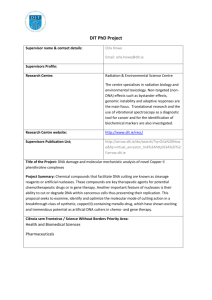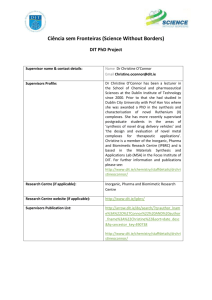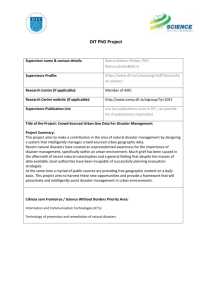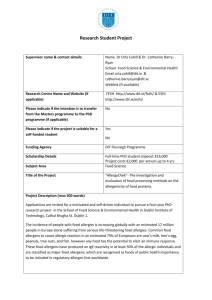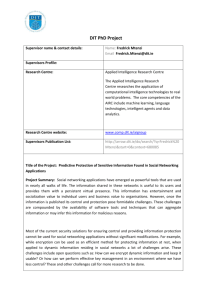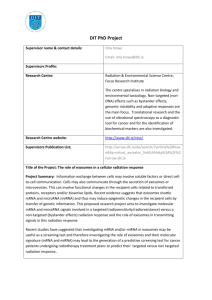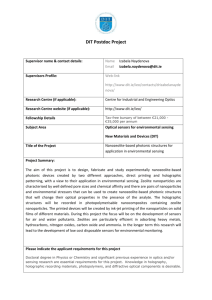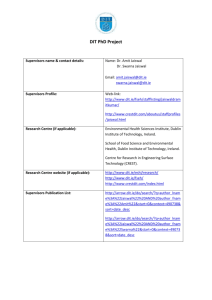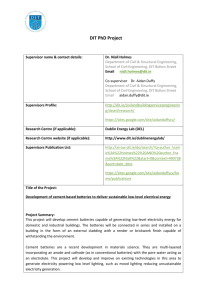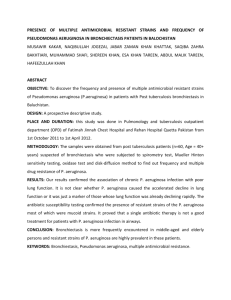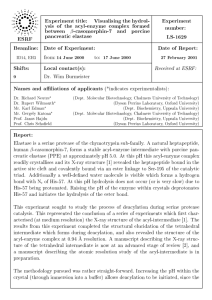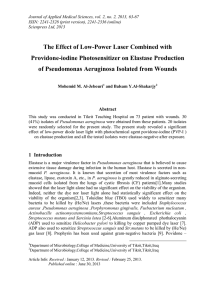Effects of novel metal based complexes on elastase of
advertisement
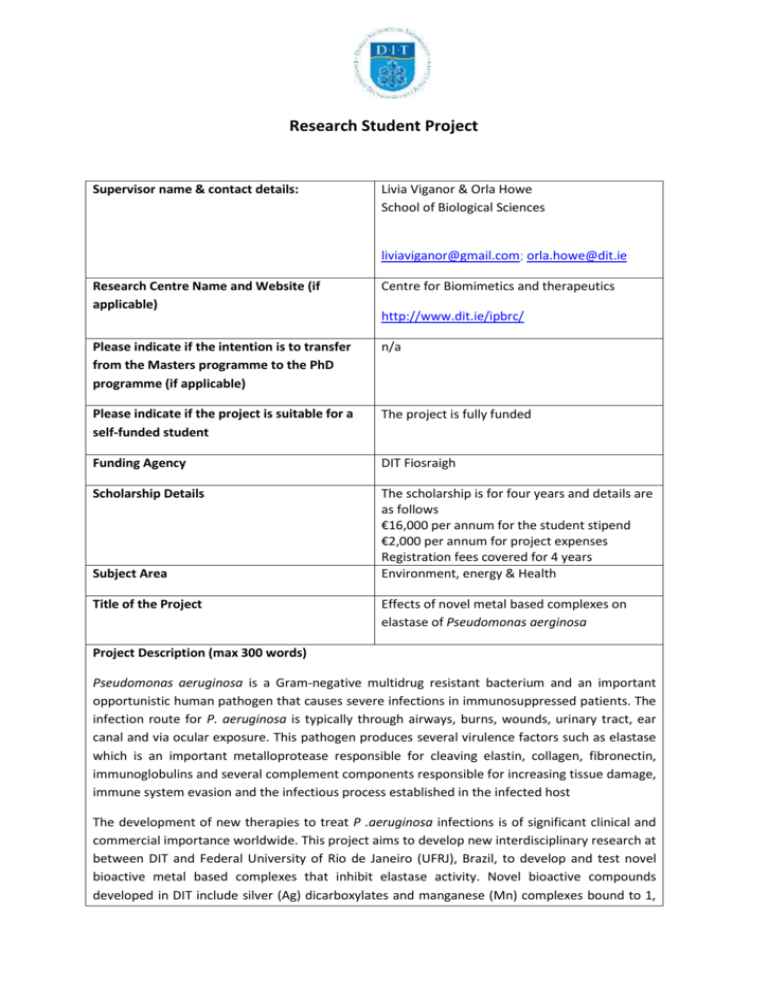
Research Student Project Supervisor name & contact details: Livia Viganor & Orla Howe School of Biological Sciences liviaviganor@gmail.com; orla.howe@dit.ie Research Centre Name and Website (if applicable) Centre for Biomimetics and therapeutics Please indicate if the intention is to transfer from the Masters programme to the PhD programme (if applicable) n/a Please indicate if the project is suitable for a self-funded student The project is fully funded Funding Agency DIT Fiosraigh Scholarship Details The scholarship is for four years and details are as follows €16,000 per annum for the student stipend €2,000 per annum for project expenses Registration fees covered for 4 years Environment, energy & Health Subject Area Title of the Project http://www.dit.ie/ipbrc/ Effects of novel metal based complexes on elastase of Pseudomonas aerginosa Project Description (max 300 words) Pseudomonas aeruginosa is a Gram-negative multidrug resistant bacterium and an important opportunistic human pathogen that causes severe infections in immunosuppressed patients. The infection route for P. aeruginosa is typically through airways, burns, wounds, urinary tract, ear canal and via ocular exposure. This pathogen produces several virulence factors such as elastase which is an important metalloprotease responsible for cleaving elastin, collagen, fibronectin, immunoglobulins and several complement components responsible for increasing tissue damage, immune system evasion and the infectious process established in the infected host The development of new therapies to treat P .aeruginosa infections is of significant clinical and commercial importance worldwide. This project aims to develop new interdisciplinary research at between DIT and Federal University of Rio de Janeiro (UFRJ), Brazil, to develop and test novel bioactive metal based complexes that inhibit elastase activity. Novel bioactive compounds developed in DIT include silver (Ag) dicarboxylates and manganese (Mn) complexes bound to 1, 10 phenanthroline ligand for greater solubility and stability properties for biological test systems. This includes elastase gene cloning and expression along with site directed mutagenesis of elastase to produce a comparative mutant form. In vivo analysis using the Galleria mellonella test model in house will also be incorporated Please indicate the student requirements for this project Min. 2.1 BSc in Biological sciences IETLs English competency Deadline to submit applications (only for funded projects) Friday 5pm 29th January 2016
